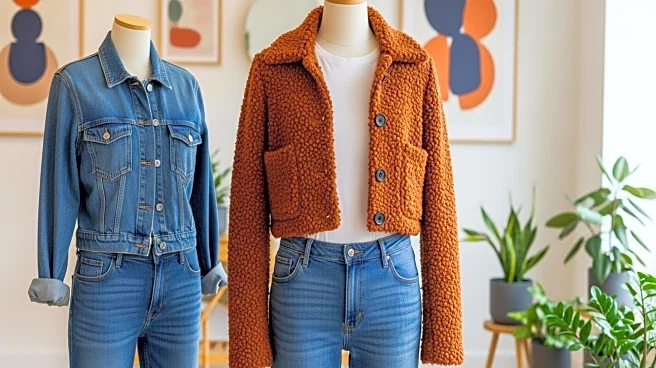What's Happening?
Depop has launched its largest U.S. advertising campaign, 'Where Taste Recognizes Taste,' aimed at making resale fashion a cultural norm. The campaign, developed by Uncommon Creative Studio, dramatizes the idea of shared style linking people across different backgrounds. It features a surreal ad where a sweater unravels, connecting two individuals through their fashion choices. Depop, a subsidiary of Etsy, is expanding its appeal beyond its core Gen Z audience to include new demographics, such as parents buying secondhand clothing for their children. The campaign will be rolled out nationwide across various media platforms.
Why It's Important?
Depop's campaign reflects the growing trend of resale fashion, which is projected to reach $367 billion globally by 2029. By positioning resale as a cultural norm, Depop aims to broaden its market reach and appeal to a wider audience. This initiative is significant as it aligns with the increasing popularity of circular fashion and sustainability. Depop's efforts to shift the perception of resale fashion could influence consumer behavior and drive growth in the secondhand apparel market, benefiting both the platform and its users.
What's Next?
Depop plans to continue emphasizing community and spotlighting real users who connect through shared aesthetics. The campaign will evolve to highlight the passionate sellers and buyers on the platform, reinforcing the idea of genuine style connections. As circular fashion gains traction, Depop's focus on making secondhand fashion exciting and accessible could lead to increased adoption and growth in the resale market. The platform's strategic advertising approach may also inspire other brands to explore similar initiatives.
Beyond the Headlines
Depop's campaign underscores the cultural shift towards sustainable fashion practices and the importance of community in the resale market. By highlighting personal connections through shared style, Depop taps into the emotional aspect of fashion, potentially reshaping consumer attitudes towards secondhand clothing. This approach reflects broader societal trends towards sustainability and personalization, which could have long-term implications for the fashion industry.








